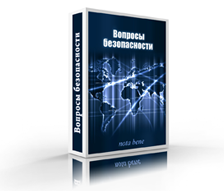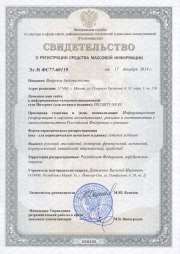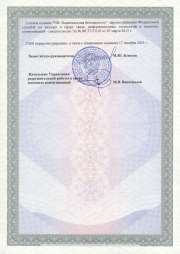|
MAIN PAGE
> Back to contents
Publications of Eremina Natalia
|
Politics and Society, 2019-1
|
|
Eremina N., Konfisakhor A.G., Solonnikov D.V. - Liberal democracy in evolution of the Euro-Atlantic geo-civilization (prior and after election of Donald Trump as the President of the United States)
|
|
pp. 18-35
|
DOI: 10.7256/2454-0684.2019.1.27568
Abstract: The subject of this research is the factor of election of D. Trump in the development of Euro-Atlantic community; the object is the evolution of Euro-Atlantic geo-civilization. The authors examine the characteristic features of the Euro-Atlantic community, principles of the so-called Euro-Atlantic solidarity, theoretical views upon the problem of globalism of liberal democracy, distribution of liberal democracy and decrease of its influence, foreign policy strategies of the United States, their practical implementation, cooperation of the states belonging to the Euro-Atlantic geo-civilizational circle, as well as the states regarded to the various geo-civilizational realms. The study is based on the geo-civilizational approach for comprehensive analysis of the external and internal characteristics of the large territory (geo-civilizational realm), which comprise the sustainable elements of its evolution and allow demonstrating the interdependence of the sociopolitical development upon the establishment of international formats of cooperation between the “affined” from geo-civilizational perspective countries and shift of the internal liberal-democratic ideology outwards. The following conclusions were made: liberal ideology is reflected in the approaches of liberal hegemony; the so-called liberal values predetermined the formation of the unified liberal-democratic world, the affiliation to which depends on their recognition; currently, there can be observed not only the emergence of the new hybrid form of liberalism, but also the revival of the ideas of nationalism and traditionalism; the future of liberalism in many ways depends on its positions with the United States after the election of D. Trump as the Presidents, who already started amending its interpretation, mostly within the framework of foreign policy. The scientific novelty lies in the statement that the problem of liberal-democratic globalism is examined through the prism of geo-civilizational approach.

|
Eremina N., Konfisakhor A.G., Solonnikov D.V. - “Identity” factor in development of geo-civilizations
|
|
pp. 45-63
|
DOI: 10.25136/2409-7144.2018.3.25672
Abstract: The subject of this research is the identity factor in formation, development, and interaction of geo-civilizations. The concept of identity is revealed through the sociocultural, psychological, and ethnic constants. They serve as the foundation for the adequate response of geo-civilization in general and the core state of geo-civilization particularly with regards to various challenges, as well as the explanation of this response. Special attention is given to the following aspects: understanding of geo-civilization; representations on core states; characteristics of ethnicity, culture and religion; identification features of the primary geo-civilizations. The research is based on the established civilizational and geo-civilizational approaches that correlate with the determination of identification features of the large regional communities in evolution and interaction. The key research method lies in the comparative analysis of identification (psychological, sociocultural, ethnic, and mental) aspects of geo-civilizations. The following conclusions were made: the evolution of geo-civilizations depends on the core states, because namely their identification constants affect the course of this development; through the prism of the concept of identity between geo-civilizations, is detected a number of common characteristics, which allow structuring the diplomatic activeness, primarily between the core states of different geo-civilizations; identification features also demonstrate that many issues of intergovernmental cooperation cannot be fundamentally overcome due to the difficulties in interaction between the diverse geo-civilizational identities; overcoming of such problems necessitates the creation of the new identification links between the relatively similar geo-civilizations. The scientific novelty and author’s contribution are defined by the actualization of (geo-) civilizational approach to explanation of the global politics.

|
Eremina N., Konfisakhor A.G., Solonnikov D.V. - Concept of “geo-civilizations”: theoretical and practical aspects
|
|
pp. 12-29
|
DOI: 10.25136/2409-7144.2017.6.22897
Abstract: The subject of this article is the functionality and evolution of geo-civilizations from the theoretical and practical perspectives. Certain countries of one or another regional, in accordance with its level of cultural, material-technical, economic, and military development can be called civilization; and with the adjacent territories that share common values, cultural and identification codes, they create the geo-civilizations. Namely geo-civilizations represents the most significant object for studying the international relations which allows taking into account the dynamic of changes within the framework of large spaces. Therefore, special attention is given to the identification indexes, associated with the psychological and cultural peculiarities of communities that affect the formation of geo-civilizations. The article leans on the systemic and civilizational approaches for comprehensive examination of the international processes in the context of grouping of the states into unions, blocks, macro-regional organizations, and ultimately, geo-civilizational formations. The scientific novelty consists in combining the developments of psychophysiological theory of power, civilizational approaches, and concepts of the “English” school of international relations, which allowed determining the key geo-civilizations and their features, as well as explaining the opportunities for the dialogue or conflict that emerge due to the specific identification tasks of the communities living within its framework. However, between the civilizations and states that comprise the total geo-civilization, there are a lot more common points, rather than the reasons for confrontation.

|
National Security, 2017-1
|
|
Eremina N., Seredenko S. - Persecutions in the system of ethnocentric understanding of national security (on the example of Baltic States)
|
|
pp. 137-165
|
DOI: 10.7256/2454-0668.2017.1.18798
Abstract: The subject of this research is the problem of persecutions of the human rights advocates in the Baltic States. The object of this research is the strategies of national security in the Baltic States examined through the prism of ethnic nationalism, where the persecutions manifest as the tool of their realization. The presented work is the first in academic literature to study the impact of ethnic nationalism upon the social and state development and understanding of security, as well as suggests as an evident example a yet insufficiently studied problem of persecution of the human rights supporters. Thus, the article reviews such topics, as the strategies of national security in the context of the Baltic countries’ policy of ethnic nationalism, questions of sovereignty, and international law within the framework of supporting the human rights advocates. Examination of these aspects allows answering the relevant question – why it is not possible to establish the status quo in social and state development of the Baltic countries. The research leans on the institutional method, taking into account the analysis of legal norms and work of the corresponding institutions that ensure implementation of the national security strategies in Latvia, Estonia, and Lithuania. The scientific novelty consists in the fact that ethnic nationalism is presented ad a structural element of national security strategies in the Baltic States. In addition to that, the author is first to raise a question about the methods of realization of national security strategies, which are reflected in the persecutions of human rights advocates. The article also examines the regional level (Baltic countries) in the more extensive geopolitical context, which allows binding together the tasks and strategies proposed by Latvia, Estonia, and Lithuania with the task that the acting geopolitical determinants are faced with.

|
Eremina N., Seredenko S. - An integral of the Russian world: approaches and suggestions
|
|
pp. 94-114
|
DOI: 10.7256/2409-7144.2016.11.2085
Abstract: The subject of this research is the Russian world concept, while the object is the various dimensions of the concept establishing historically, as well as by means of the current tasks and challenges, which add form and content to this concept. The article represents Russian world as the concept aimed inside and outside of Russia, which gives it multiple meanings, but simultaneously turns it into one of the most efficient mechanisms of the so-called soft power. The main aspects of examination of the Russian world consist in its political (ideological) and legal dimensions. In order to study the multiple meanings of the Russian world, the author apply the complex approach and systemic analysis, because the Russian world is presented as a certain integral system that preserves the dynamicity of development and cultural codes. The scientific novelty lies in the fact that the authors are first to suggest legal consciousness as the integral of the initial Russian world. It explains the dynamic of development of the Russian world, its clarity in preservation of the blurred boundaries, because they are defined by the presence of the “critical mass” of the Russians, expressed by the legal consciousness and culture.

|
Eremina N., Seredenko S. - Modern Russian Liberals and Fascism
|
|
pp. 150-277
|
DOI: 10.7256/2409-7144.2015.10.1645
Abstract: The subject of the research is the political views of the Russian liberal public, or is wider, "not system opposition". Object of research - a position of leaders of "not system opposition" on fascism and Nazism, interpretation of these definitions and all circumstances and the phenomena by them, with them connected. The purpose of the real research – to give the forecast of reaction of the Russian liberals for attempt to bring definition of Nazism (fascism), and also research of ideas of modern Russian liberals of Nazism (fascism) in the Russian legislation. Authors in detail consider scientific ideas of Nazism and fascism and reveal the key points of view of the Russian liberals, whose approach causes fears of a trivialization of fascism. Research methods – the system analysis and the content analysis. These methods allow to investigate the Russian liberal public as the group possessing certain signs among which in work as the leader the view of fascism and Nazism is considered. Content the analysis was applied to studying of public statements of the Russian liberals. Novelty of the presented research consists in that. that for the first time in scientific work the question of transformation of definitions of fascism and Nazism in political tools which actively are used recently by bright representatives so-called "not system opposition" of Russia was raised. In addition, authors managed to come to a number of the scientific finds, for example, connected with views of liberals of the Soviet period in the history of Russia. Is important as well that authors could develop concrete recommendations which can be useful in legislative process during development of the relevant law on fascism (Nazism).

|
International Law, 2015-2
|
|
Eremina N., Seredenko S. - The double life of international crimes: examining the issue and terminology
|
|
pp. 1-52
|
DOI: 10.7256/2306-9899.2015.2.14485
Abstract: The subject of this research is the appeals of political institutions and declarations and statements of politicians, who use accusations of international crimes as a political instrument. The goal of this work is to conduct a thorough analysis of this issue (causes, forms of appeal, possible consequences), as it not only testifies to the existence of the so-called double standards, but also a method of strengthening the stereotypes regarding specific nations, and means of destroying an image of a country. The article gives a detailed examination of the following political statements: “regime crimes”, “declaration” of an international crime, “condemnation” of a nation. The authors also analyze the nature of “punishments” introduced against one or another country in the form of sanctions for the said “crimes”. The main sources for this work were the international legal documents, as well as the statements and declarations of political leaders. The article is first to research the use of international law as a political instrument for solving specific tasks before particular circles of individuals or country. The authors formulate the question, and compile a catalogue of similar political appeals.

|
Eremina N. - Scottish Independence Referendum as a Challenge to the British Statehood
|
|
pp. 1-25
|
DOI: 10.7256/2306-0158.2014.8.12925
Abstract: In article a number of the interconnected problems is investigated: the state and people's sovereignty, a referendum, interaction on the line the center - the national (ethnic) region, a devolyution and federalization, identification in the conditions of national self-determination and European integration.Thanks to the analysis of the specified problems, it is possible to estimate as the reason of holding a referendum on self-determination in Scotland which it is possible to call indicative from the point of view of occurring in Europe integration and the dezintegratsionnykh of processes, and also his consequences both for Scotland, and for the United Kingdom and the united Europe in general. In article historical and politological approach which allows in a complex is used and in a historical retrospective to investigate the events connected as with emergence of idea of a referendum on independence of Scotland and to define positions of key political players and the population on each historical piece considered in article. The central place in research is taken by the concept of cultural and territorial differentiations thanks to which the interrelation of cultural development of territories and a political choice of the population is obvious. In this article are for the first time investigated not only the reasons which resulted in need to hold a referendum on independence of Scotland, but also a question of the price of possible independence, and not only for the region, but also for the United Kingdom in general, and also for the European Union and NATO participation in which Scotland intends to keep. The most controversial issues connected with a dislocation of base of underwater fleet with a nuclear arsenal, economic support of the Scottish independence, identification problems of British and Scots, and also interaction of Scotland with the EU and NATO including according to the documents prepared by the Scotch national game are revealed and subjected to the analysis. The latest data on a position of the population and the statement of the top officials of the state for referendum consequences for the United Kingdom and Scotland are given in article.

|
Eremina N., Seredenko S. - Constitutional Nationalism in Modern Europe: the New Level of Threats
|
|
pp. 1-42
|
DOI: 10.7256/2306-0158.2014.3.11170
Abstract: Ñonstitutional nationalism means formation of a long-term problem of racial (ethnic) discrimination as testifies to existence of these or those norms on the basis of which the ethnic minority (even when it historically lives in the territory of this or that state) appears in unequal situation. This problem interferes with realization of problems of creation of civil society and carrying out the national policy directed on stabilization of political development, and is sign as for many states of the former Soviet Union, and Europe. On the basis of the comparative analysis for the first time in the academic science ways of penetration of nationalism in the constitutional texts of various states are investigated. Political and historical approach allows to draw parallels of development of the constitutional thought with an event outline and expectations of political elite of the studied states. As a result of research nationalism and Nazism markers in constitutions of the states of Europe and the former Soviet Union that makes scientific novelty of work which is actual and for legal and political practice of many states were defined. These markers can serve as the tool at performance of the UNGAResolution No. 67/154 of 20.12.2013 and help in understanding of those political processes which happen in different regions of Europe and the world. During work markers of nationalism were separated from Nazism markers. It allowed to reveal as the general character of a problem of growth of national discrimination in the different countries, and existence of opportunities of toughening of a political regime concerning ethnic minorities. The most serious problem appears in the countries of the Central and Eastern Europe.

|
|






